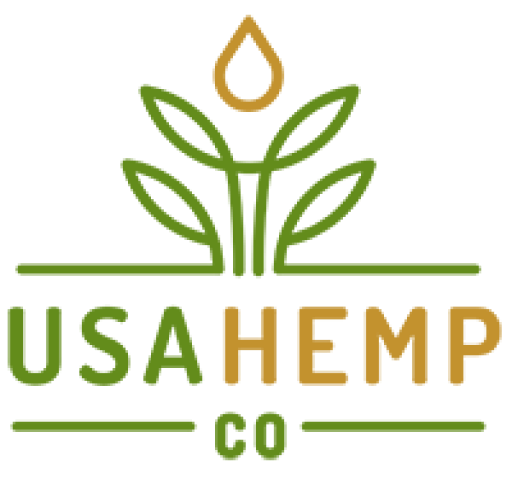What Does CBD Stand For, And What Does it Do?
You may have heard a lot about CBD oil lately, as it is a relatively new compound that everyone seems to be discussing. Chances are you may already know something about CBD but not enough to make an educated choice on it. If your desire to explore more about CBD has directed you here, then rest assured, you are at the right place. In this article you will learn much more than just what CBD stand for. We will be discussing where CBD originates from, what it stands for, how it works, and why you should be adding USA hemp’s CBD oil into your daily routine.
What Does CBD Stand for?
CBD stands for cannabidiol. It originates from hemp, a plant related to the Cannabis sativa L family. For most people, the first thing that appears on their minds is marijuana or THC when they hear about cannabis. However, the fact is that hemp also belongs to this remarkable plant species. By definition legal hemp contains less than 0.3% THC and some hemp strains are rich in CBD. Reputable brands use these CBD-rich strains to derive high quality CBD for use in various products while keeping the amount of THC negligible. You can find decent amounts of CBD in some marijuana strains, too, but most CBD products are made from hemp to avoid psychoactive effects.
Related Read:CBD vs. hemp gummies
CBD And The Endocannabinoid System
CBD exhibits its effects by interacting with the body's endocannabinoid system (ECS). The ECS is a series of cannabinoid receptors found throughout the body which work to bring the body back into balance (homeostasis). It also helps regulate many essential functions like sleep, appetite, mood changes, etc. This ECS consists of compounds known as endocannabinoids, which are naturally existing molecules similar to the cannabinoids present in hemp. This similar connection between endocannabinoids of the human body and hemp cannabinoids naturally allows CBD to produce a massive range of positive effects in CBD users.
How Does CBD Work?
CBD works by binding to the receptors located throughout our ECS and central nervous system. Activating these receptors allows CBD to balance our bodies and create the beneficial effects associated with CBD oil. It has been observed that CBD has the natural potency to stimulate the production of our natural endocannabinoids and block the enzymatic breakdown of cannabinoids to show effective results. However, the exact mechanism of this is still under research.
Also read: What does CBD feel like?
Significance of Endocannabinoids
As discussed earlier, endocannabinoids help regulate the body and maintain homeostasis. Once their job of regulating the body is completed, they are broken down by enzymes. CBD prevents the enzymatic breakdown of endocannabinoids to ensure that they regulate the body for more extended periods. In other words, it has a significant effect on various physiological functions of the body.
It is the reason CBD has become so popular for its favorable effects on ECS. Its massive influence on the ECS allows CBD consumers to experience joy without getting high.
Choose from our exciting range of CBD products.
The Variety Of CBD Products
You may have already seen a wide array of CBD products on the shelves including CBD tincture extracts, vape oils, CBD oils, topicals, and pure hemp oil. You can also choose the most sought-after CBD edibles such as gummies, brownies, and chocolates.
How to Take CBD?
There are different ways to take CBD. For example, CBD oil and tinctures are taken sublingually, which means that you put a few drops of oil under your tongue and hold it for 20-30 seconds for better absorption. Another popular way to take CBD is topically to target specific areas of the body. This method allows you to alleviate pain from conditions such as arthritis, muscle soreness, and more at a much faster rate than traditional tinctures.
Check out USA hemp’s CBD-infused topicals for boosting your overall health.
Hemp CBD vs. Cannabis CBD
If you are new to your CBD journey, the important thing is to know about the source of your CBD. CBD sourced from cannabis is very different from hemp-derived CBD. The difference majorly lies in the THC content. CBD that comes from hemp has negligible amounts of THC, the psychoactive component in marijuana. However, when sourced from cannabis, it is rich in THC, causing an intoxicating effect depending on how much THC your product contains.
It is recommended for first-time users to talk to their healthcare provider before starting any CBD product.
You may also want to read: CBD oil vs. THC oil.
Will CBD Oil Get You High?
The simple answer to this question is no, CBD won't get you high. It is a non-psychoactive cannabinoid produced by the cannabis plant. It does not cause intoxicating effects or a 'high' associated with THC.
Most CBD consumers avoid potential THC inebriation by opting for CBD isolates or broad-spectrum CBD. However, full-spectrum hemp extract has THC, which helps CBD interact with the body's cannabinoid receptors more efficiently without causing any psychoactive effects because of its low quantities. It's why selecting full-spectrum CBD products is always the best idea.
Let's discuss in detail the different types of CBD.
There are multiple types of CBD available today to suit everyone's needs. Here are the differences between different types of CBD.
As CBD is derived from the cannabis plant, it has traces of THC, which might cause a problem if your job demands a drug test. The good news is that a range of CBD products does not contain THC that you can use if your drug test is scheduled.
Let's quickly review the differences between CBD product types:

- Full-Spectrum CBD: These contain whole-plant extracts to maintain the natural profile of phytochemicals found in the hemp plant. As a result, these products have various cannabinoids, including THC and other beneficial compounds such as terpenes and flavonoids.
Get our full-spectrum products here.
- Broad-Spectrum CBD: These products are almost the same as full-spectrum; however, they undergo a refinement process to remove THC to negligible levels. During this refinement process a portion of the natural terpenes and flavonoids are also lost.
- CBD Isolate: It is the purest form of CBD that doesn’t contain any other compound of the cannabis plant. While full-spectrum CBD is the most beneficial of all CBD products, you may want to choose CBD Isolate in certain situations. For instance, those with severe mental illnesses should entirely avoid products that contain THC.
Most CBD users prefer full-spectrum or broad-spectrum types due to the entourage effect.
Is CBD Safe?
The World Health Organization declared CBD safe, saying it poses no risk to human health. However, in rare cases, CBD might cause some low-level side effects that include:

CBD Drug Interactions
Do not use CBD without consulting your doctor if you take any medications. This is because CBD can interact with certain drugs, potentially leading to increased levels of these medicines in the body.
What Does CBD Stand for? The Takeaway:
Now that you have known what CBD stands for, a little about what it is, and the product types, you may want to try some CBD products. To USA hemp, CBD is not just an acronym; we believe CBD stands for revolution. For this reason, we aim to provide the best CBD products for the betterment of our fellow beings.
If you have any queries about CBD, feel free to contact us. To learn more about CBD or delta 8, sign up for our email list and read our CBD 101 resource page.



